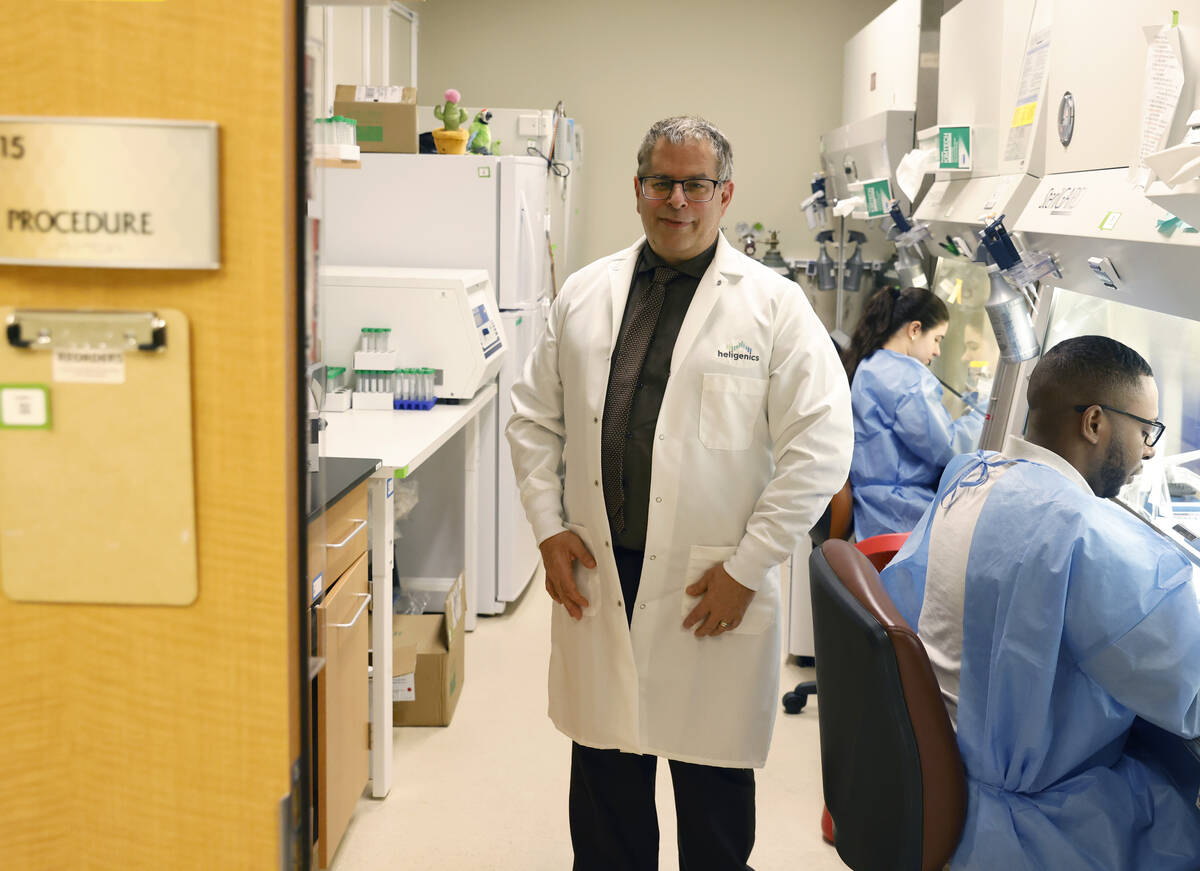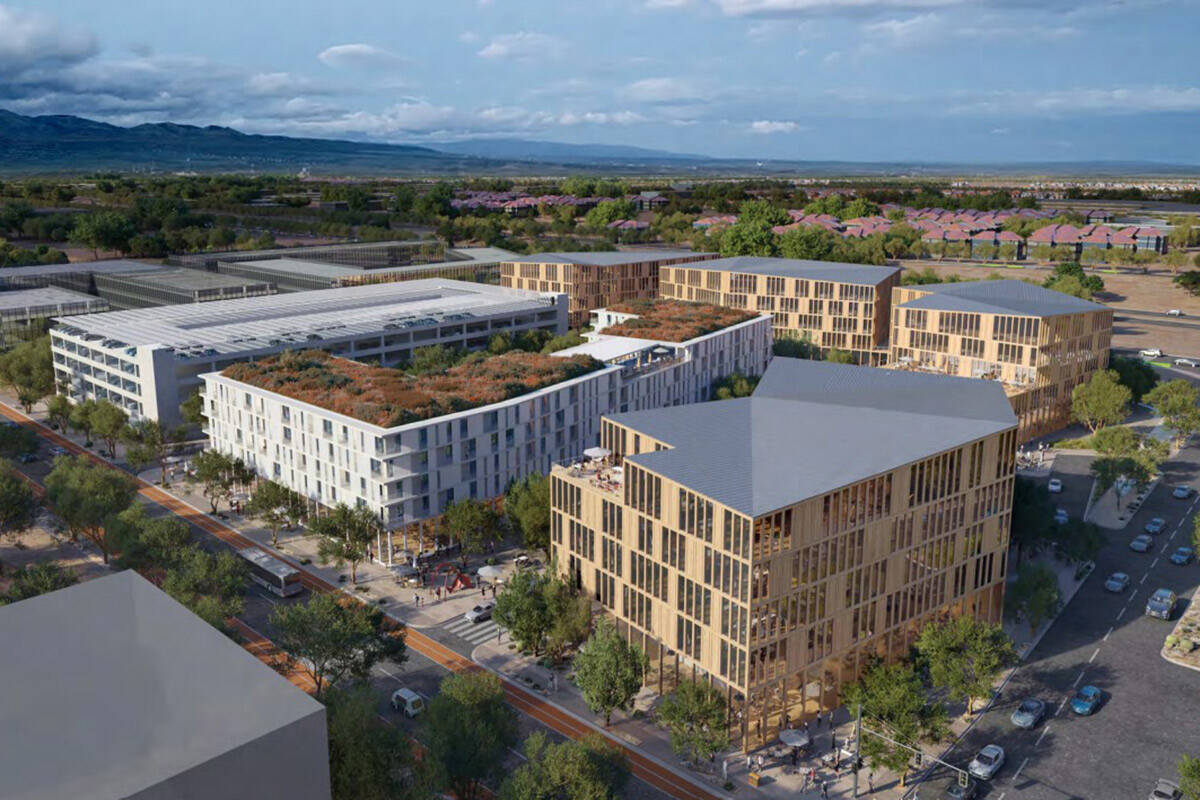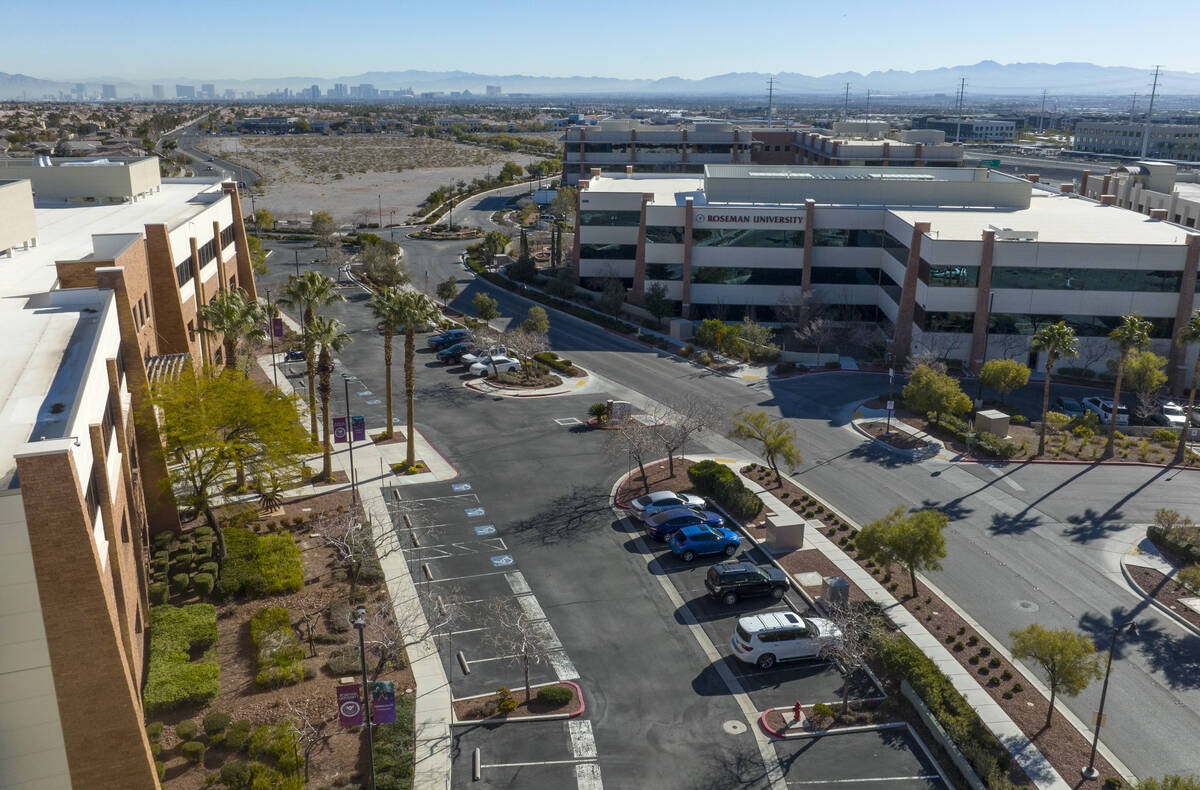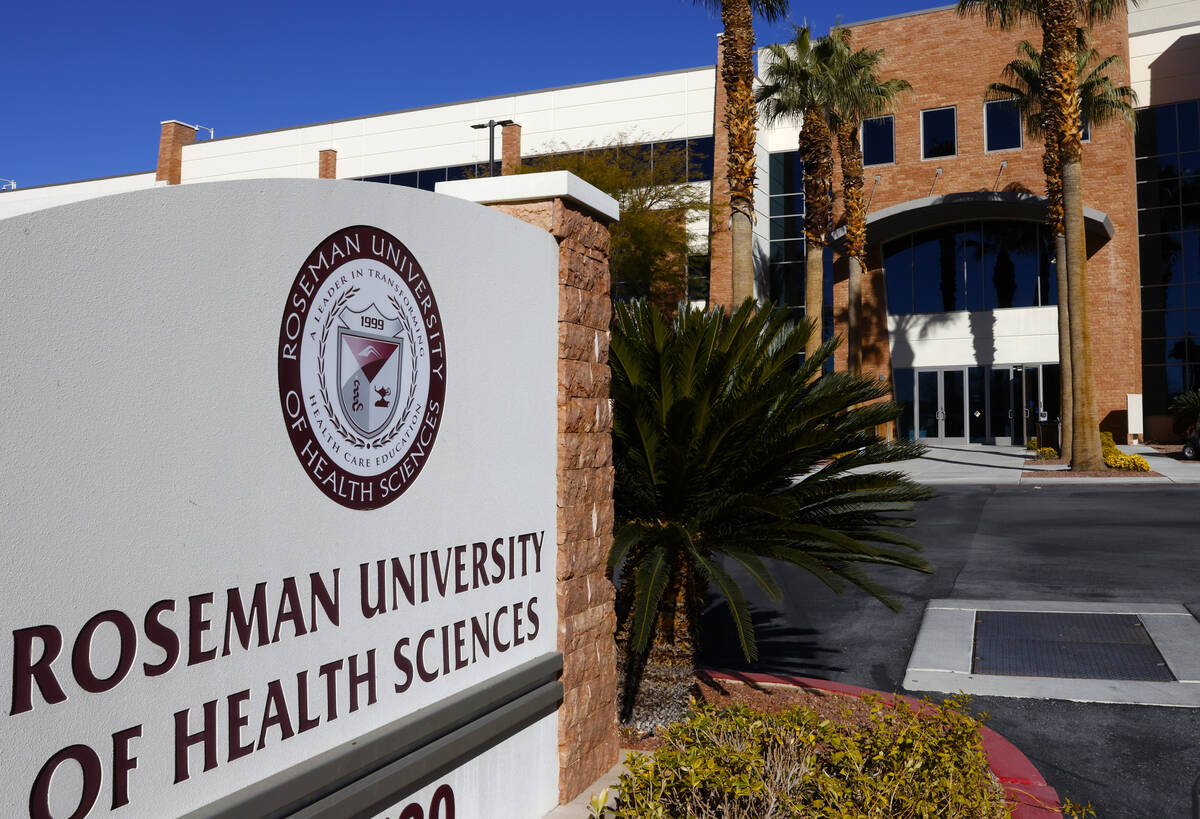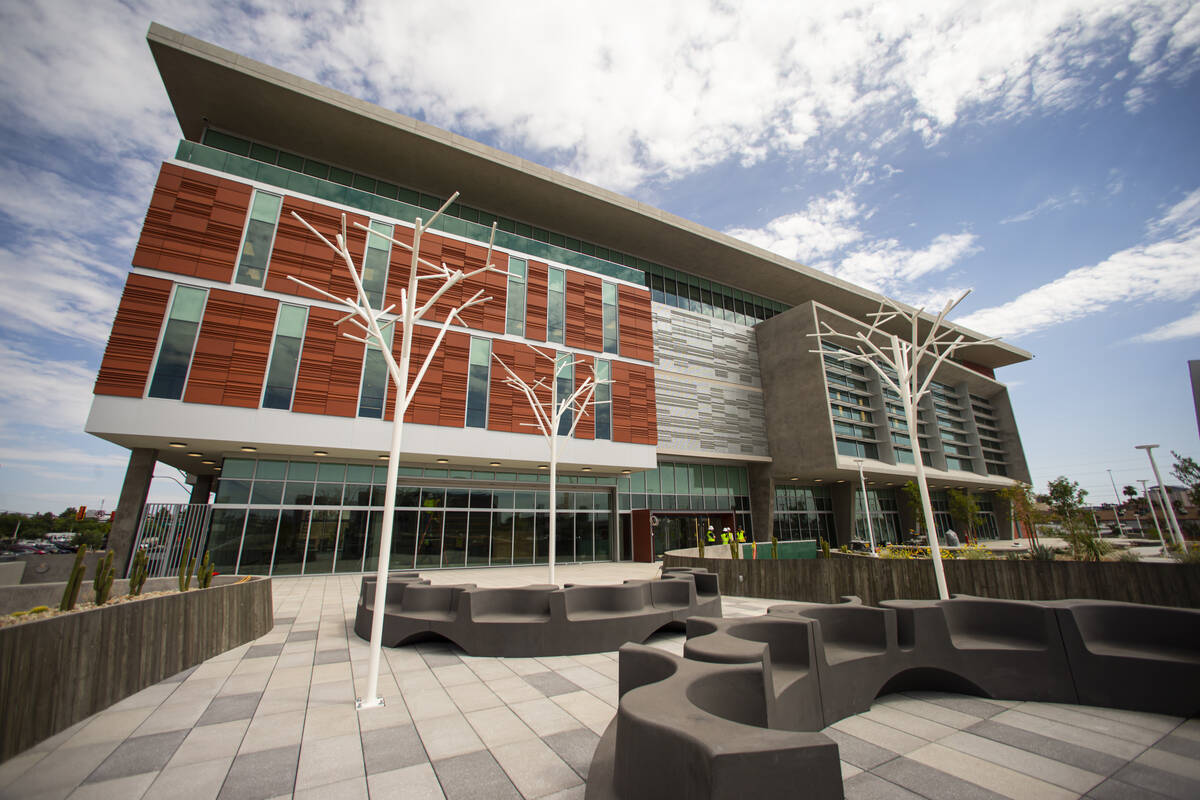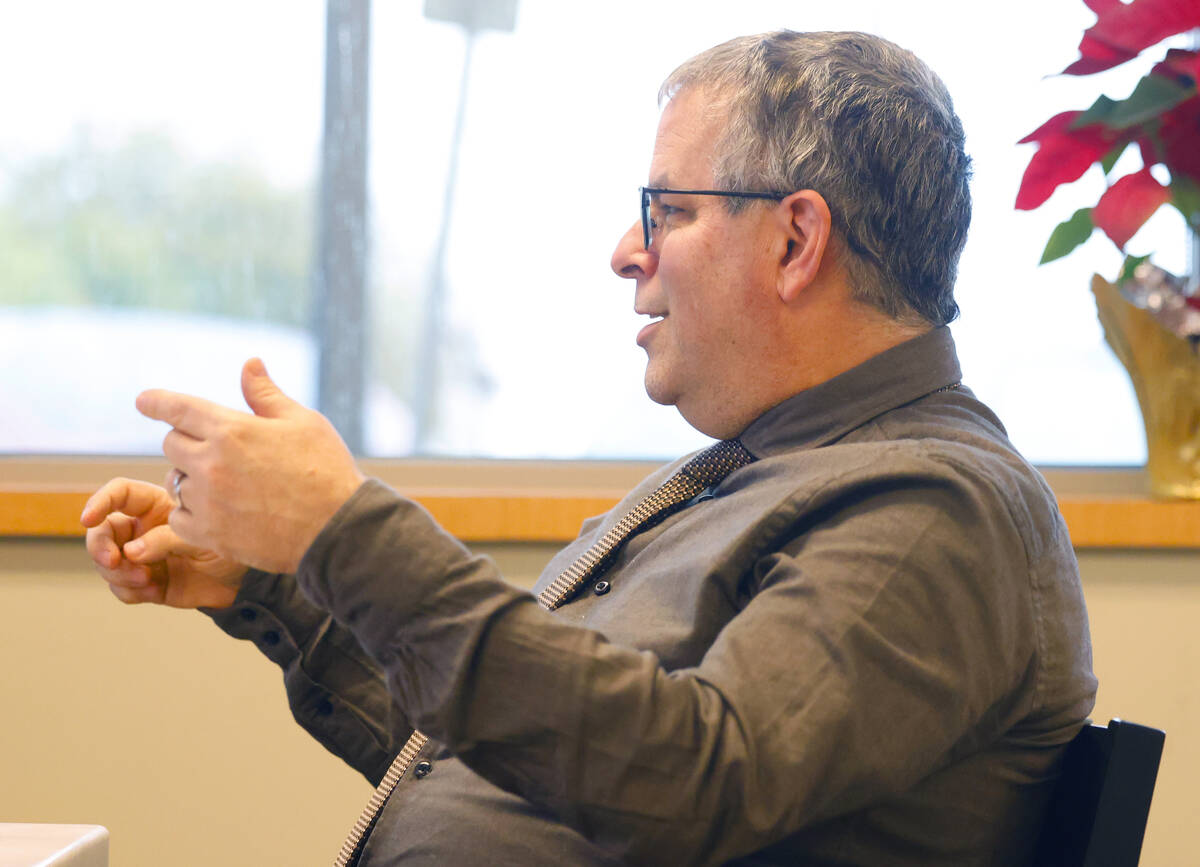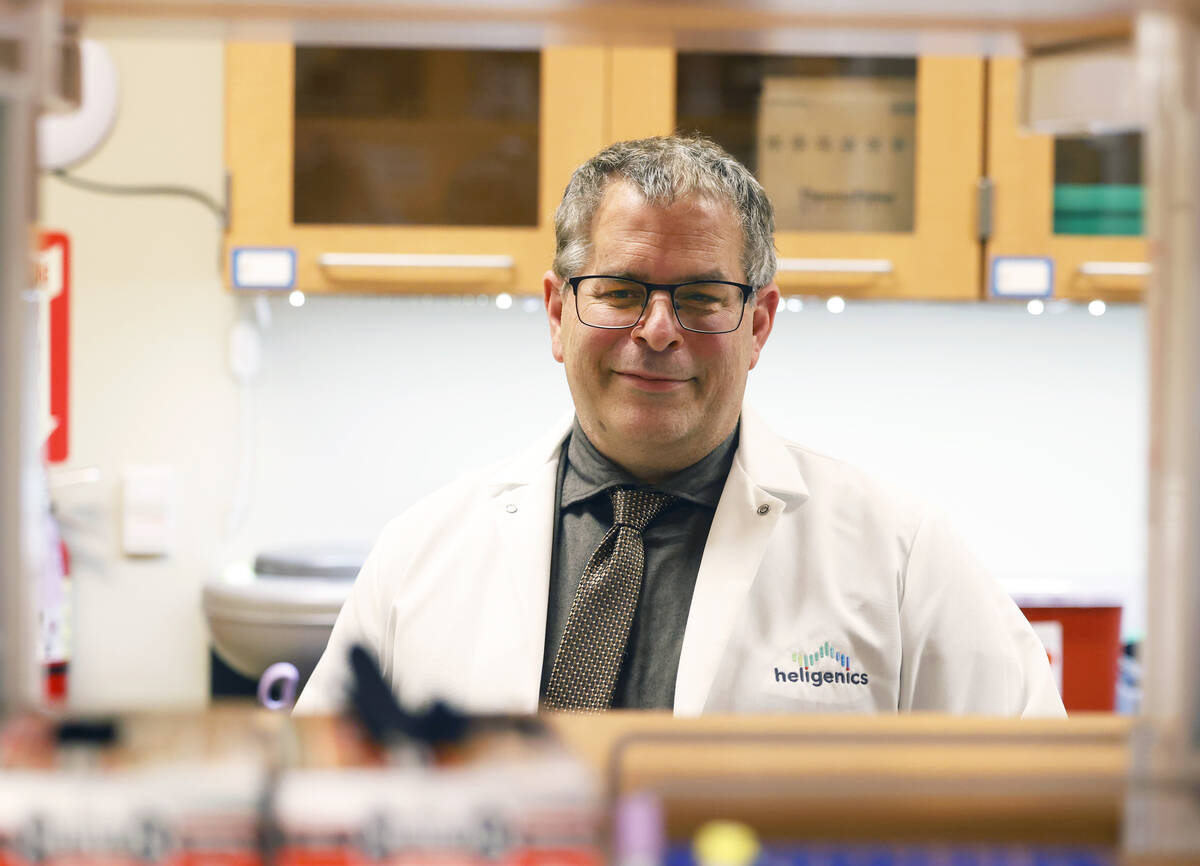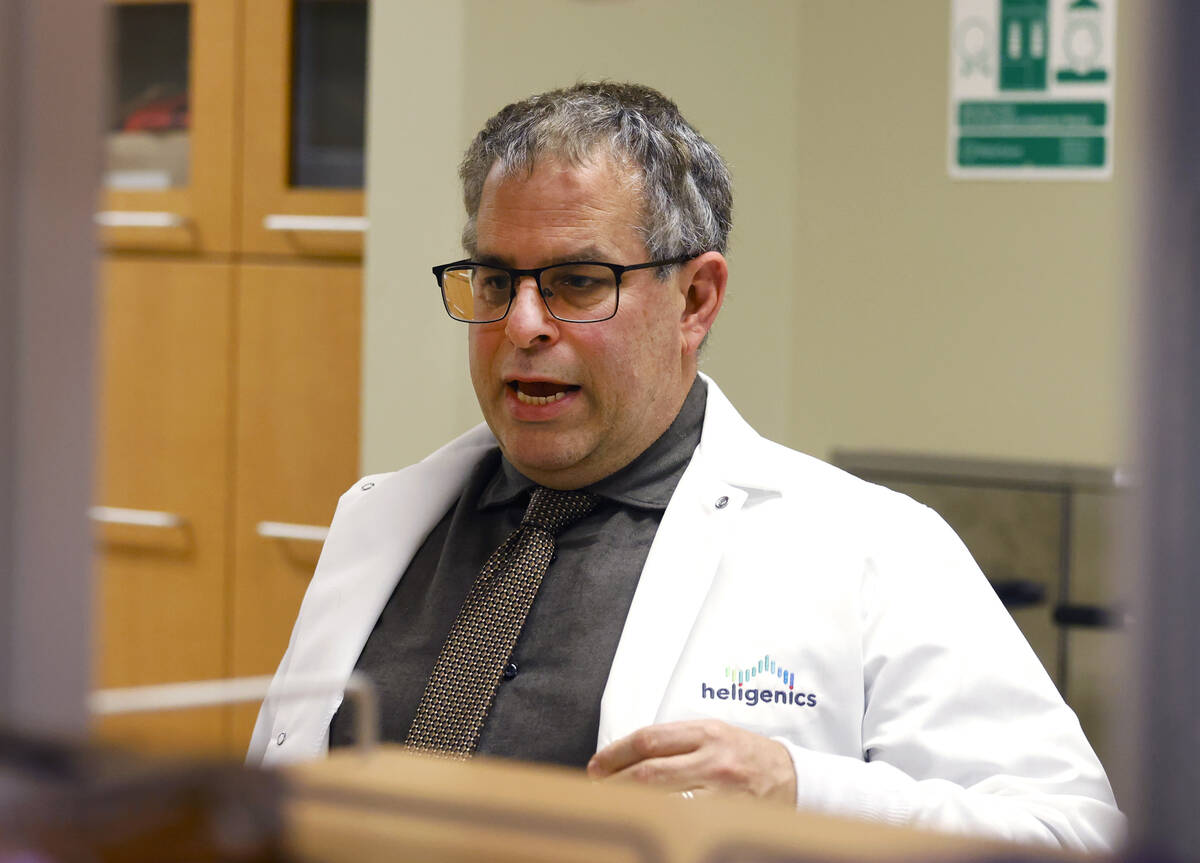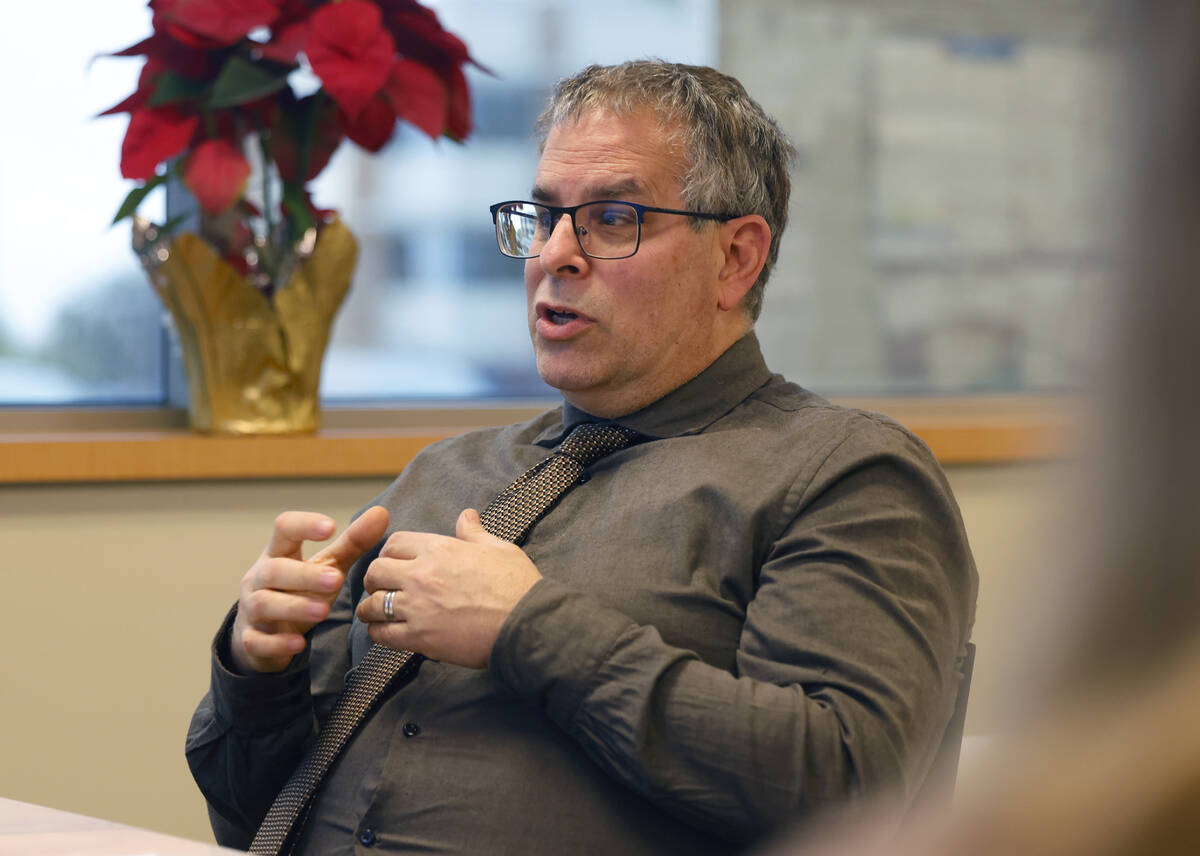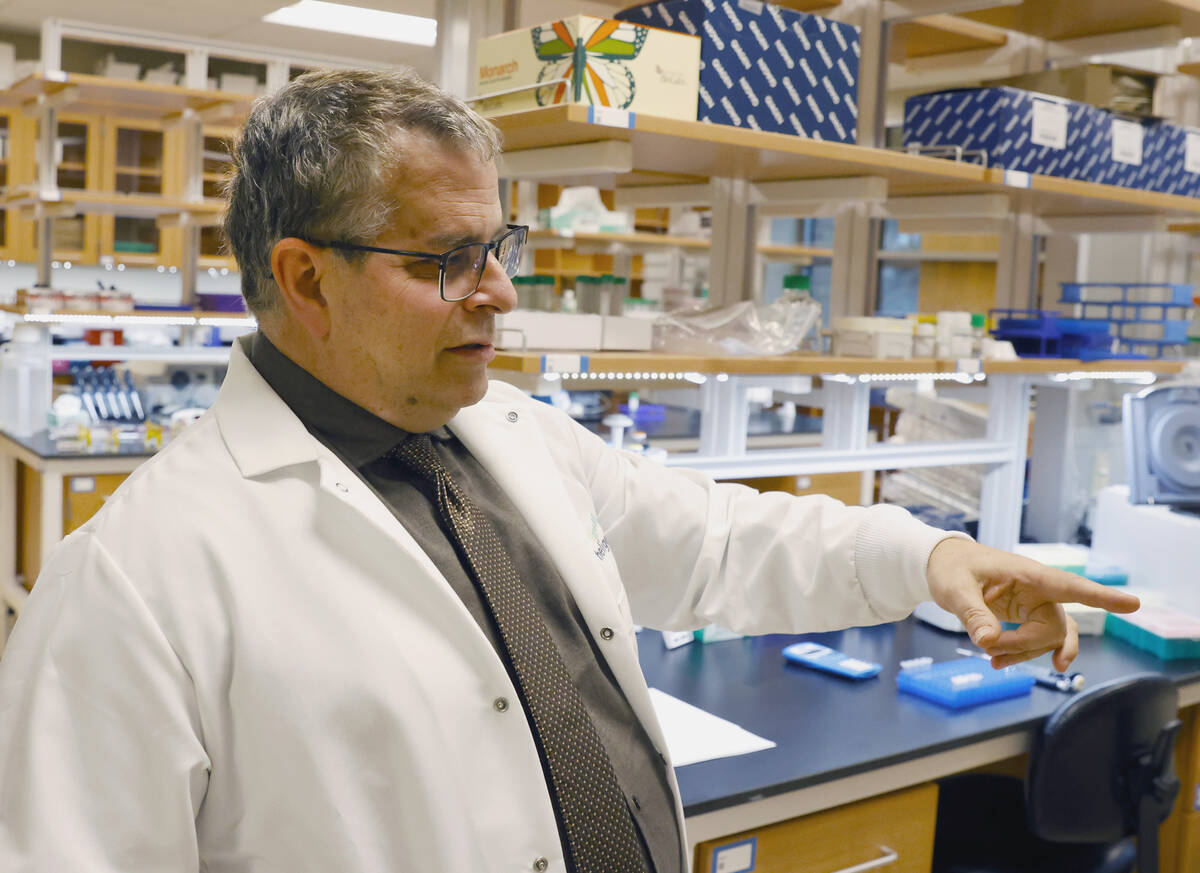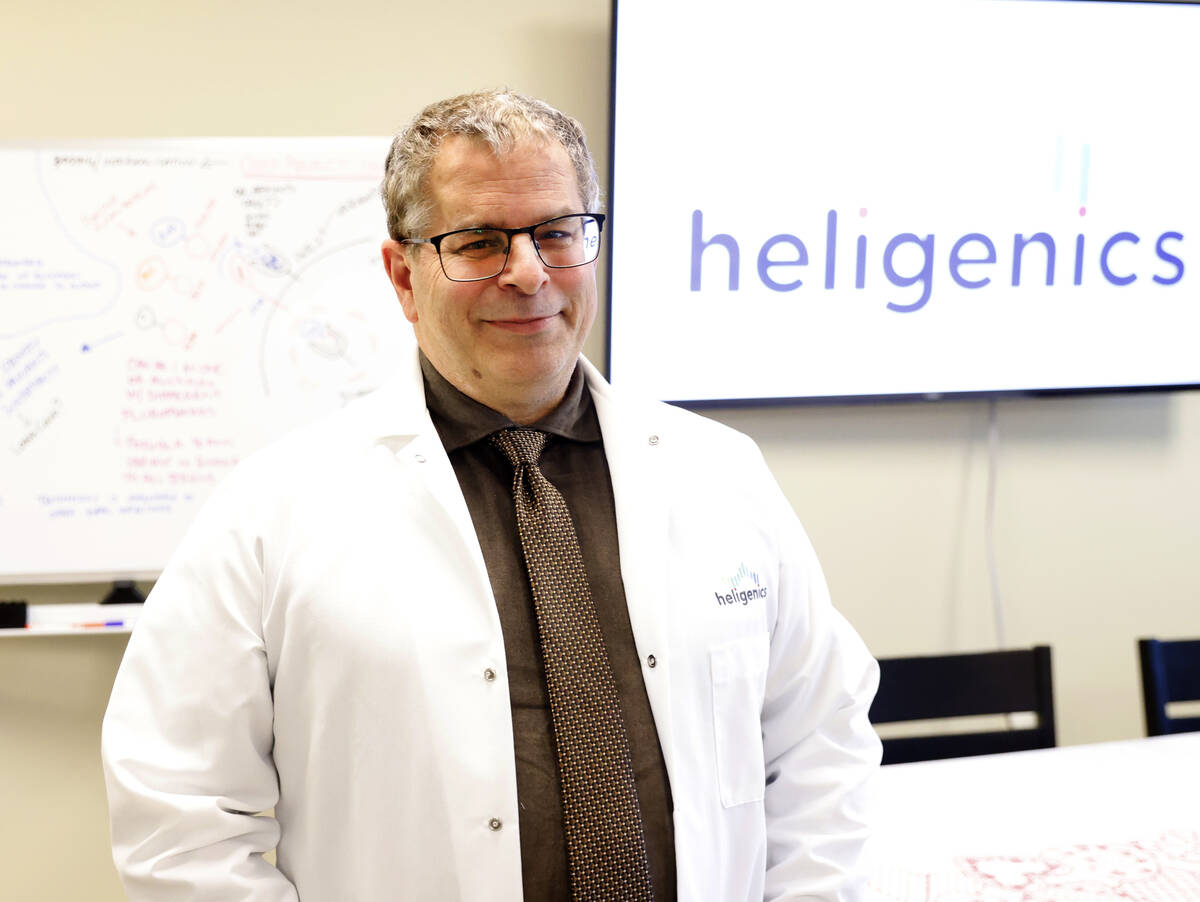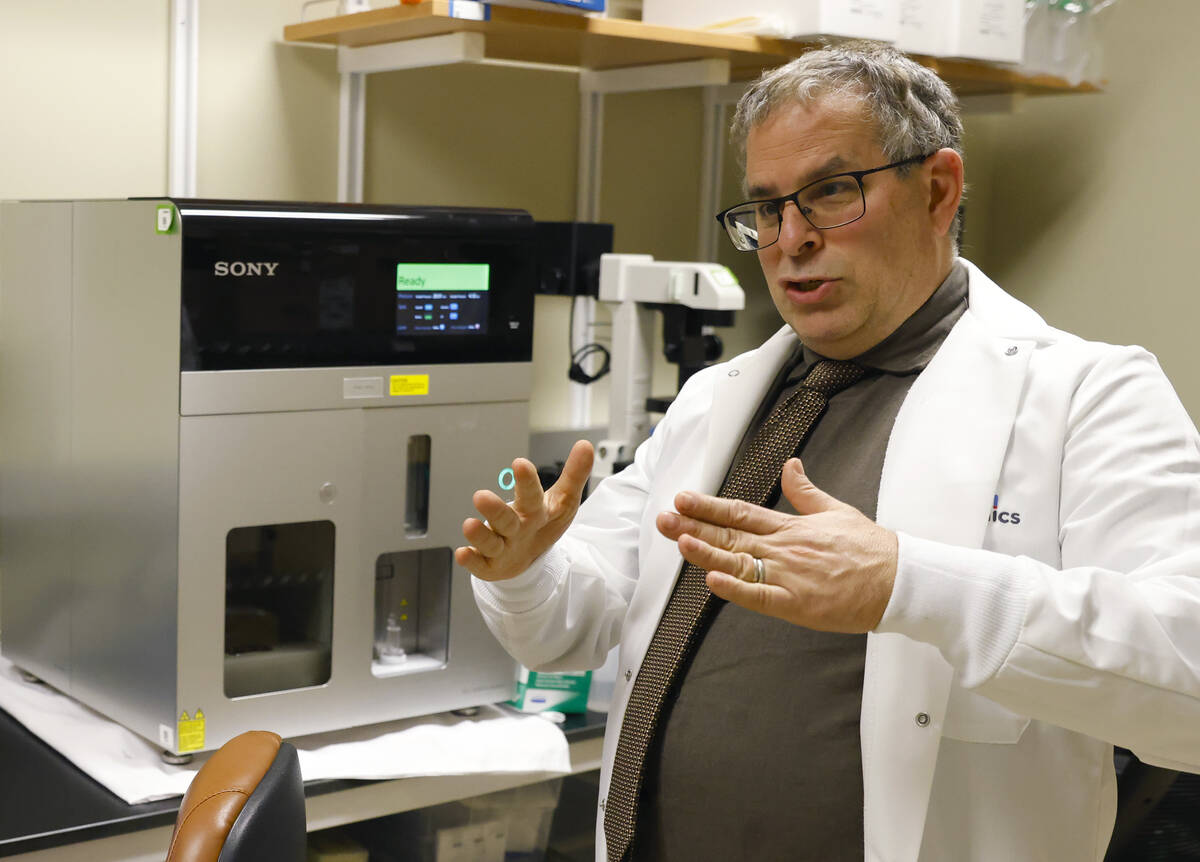This growing industry could help Las Vegas diversify its economy
When Martin Schiller decided to launch his own company based off the research he did at UNLV, he picked Las Vegas despite the prospect of being one of only a handful of biotechnology firms in the valley.
Founded in 2017, Heligenics researches how medicine can be improved and how genetics play into the effectiveness of medical care. Schiller is looking to not only improve medicine for everyone but also to be a main pillar of an emerging biotech sector in Southern Nevada.
“Being here, I knew I needed a lot less money than I did if I were in downtown San Francisco,” said Schiller, executive director of the Nevada Institute of Personalized Medicine at UNLV.
While his day job is at UNLV, Schiller operates Heligenics out of Roseman University, which is planning a $550 million expansion of its Summerlin campus that will add more office space and a medical school. Roseman offering a place for Heligenics and other companies to operate is vital as there is a shortage of research space in Southern Nevada, Schiller said.
Roseman University isn’t the only entity expanding its research space. UNLV and the city of Las Vegas have been working to expand the Las Vegas Medical District near downtown, which houses UNLV’s Kirk Kerkorian School of Medicine and there’s UNLV’s 122-acre Harry Reid Research and Technology Park in southwest Las Vegas near the proposed 20-acre Clark County innovation district designed to attract tech companies to the area.
In addition to these projects, Las Vegas is in a position to diversify its economy through the growth of the biotech industry because Southern Nevada has lower operating costs, including labor, rent and taxes, compared to established biotech markets like California.
These factors create an opportunity to actively recruit biotech companies to Las Vegas, said Mitch Keenan, vice president of business development at the Las Vegas Global Economic Alliance, who plans to travel to San Diego later this year to attend a biotech conference to identify companies that would be well-suited to relocate to Southern Nevada.
“We are a new opportunity market, where there’s not a lot of big players here,” he said.
Building the biotech sector also will help Las Vegas continue to grow its economy past gaming and tourism. And it’s lucrative, employing millions of people across the U.S. According to Biotechnology Innovation Organization, a trade association for biotech centers and companies, the industry in 2021 accounted for 2.1 million jobs and a $2.9 trillion economic impact. Currently, Nevada only has roughly 9,500 of the 2.1 million biotech jobs.
To grow the biotech industry in the valley, Las Vegas Global Economic Alliance President and CEO Tina Quigley said the region needs to update its national reputation beyond just being the national center of entertainment and gaming.
“Our region more than probably any other has to be intentional and targeted, in (economic diversification) we do have a stigma associated, where people assume that we are just one thing,” she said.
Las Vegas’ reputation
When trying to lure companies to invest in Heligenics, Schiller said Las Vegas’ reputation is a “red flag” for investors. He’s had to rely on connections he made through his academic career to receive outside funding.
Keenan said one way for Las Vegas to change its reputation is to have existing companies gain national attention for new products and innovations, but the alliance also is working to attract established biotech companies to the region.
One of those established companies, Optum Rx, moved its specialty pharmacy unit, Optum Frontier Therapies, that provides services and treatments for patients with rare diseases to Las Vegas in 2020.
Micaila Ruiz, vice president of specialty franchises for Optum Rx, said the specialty pharmacy was placed in Las Vegas because of the area’s established network of medical professionals as well as it being in a great location for shipping and transportation.
Location is important for the company since its rare disease patients are in all 50 states and Optum needs to quickly send medications around the country. Ruiz said the company hasn’t been hindered by the region’s scarcity of biotech firms.
But Schiller said having a secondary system of companies that work with biotech firms such as attorneys, accountants and other vendors would make it easier to operate in Las Vegas. He said he’s struggled to find a intellectual property attorney who has experience working in biotech.
Biotech real estate
More research and medical office space is needed in Southern Nevada for the biotech industry to grow, Keenan said.
Stacy Shapiro, vice president of the health care services group at Colliers International in Las Vegas, said this market isn’t mature as the demand for the space isn’t obvious in the current market.
“We don’t have a lot of true purist medical office campuses, like some of the larger markets that are tied to some of the universities like UCLA and Stanford,” Shapiro said. “It’s going to take the Heligenics and the Roseman partnerships of the world to demonstrate that demand.”
Schiller said that Roseman University’s expansion and the emergence of the downtown Las Vegas Medical District give him confidence there will be more opportunities for biotech companies to grow in Las Vegas. In addition to the expansion of higher education research facilities, Schiller said there should be an incubator program to develop funding resources and provide a support system for biotech companies in Las Vegas.
“We have good ideas and good momentum at this point,” he said. “I think over the next couple of years you’ll start to see it happen.”
Contact Sean Hemmersmeier at shemmersmeier@reviewjournal.com. Follow @seanhemmers34 on X.



